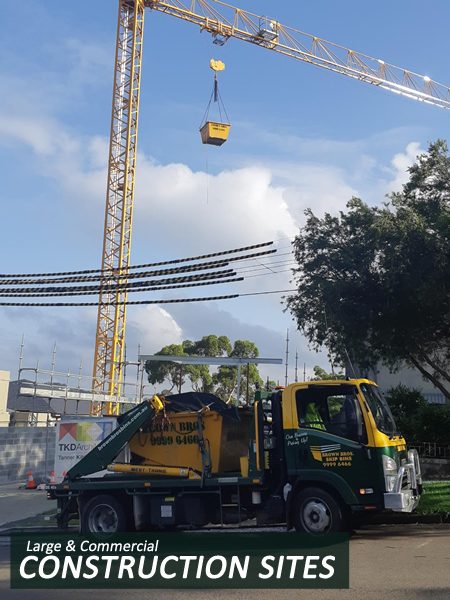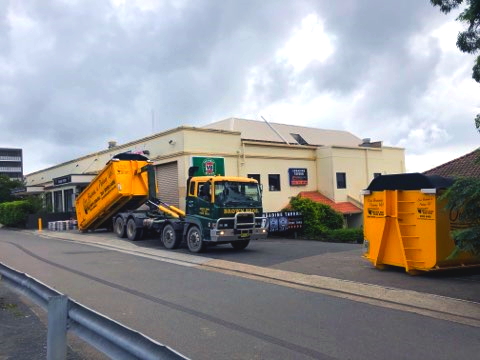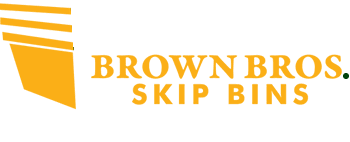Skip Bins by Waste Type
Asbestos & Asbestos Cement, Office Waste, Rubble, Virgin Excavated Natural Material, White Goods & Appliances, Brick & Concrete, Demolition & Construction, Clean Fill, Contaminated Soil, Gyprock & Plasterboard, Household Waste, Non–Recyclable, Paper & Cardboard, Sandstone, Steel & Metal, Tiles, Tyres, Vegetation / Green Waste
Paper & Cardboard
Paper and Cardboard is made from trees and is easily recycled, if the material is separated from general waste. Brown Bros. Skip Bins encourages our clients to recycle where ever possible. This reduces the impact on the environment and on land fill space.
- Paper and cardboard can be recycled into other products such as packaging, toilet paper and egg cartons can be recycled up to eight time.
- Every year around 3.5 million tonnes of paper and cardboard is used in Australia. This is enough to fill 160,000 large semi-trailers
- When paper is disposed of in landfill rather than recycled, it creates greenhouse gas methane as it breaks down.
- Manufacturing recycled paper can use up to 90% less water and 50% less energy than making it from trees
- Using recycled paper saves trees. For every 100 reams of recycled office paper that is printed doubled sided will save two trees, more than one tonne of greenhouse gas and almost a cubic metre of landfill space.
Rubble
Rubble can consist of a variety of waste types, including soil / clay, brick, concrete and asphalt. All of these products are recyclable, but when they are mixed are classed as Rubble.
VENM – Virgin Excavated Natural Material
Materials such as soil, sand stone, bush rock and clay are natural products and are called VENM Virgin Excavated Natural Material at the Recycling centres. In order for these products to be classed as VENM they must be completely void of any other man made contaminates such as timber or concrete.
Steel & Metal
Steel and Metal can be classed in to two categories, Ferrous or Non Ferrous. Ferrous metals are products such as steel and stainless. Non Ferrous metals are products such as Aluminium and Cooper.
Vegetation
Vegetation is classed as green waste. When vegetation is put into landfill it is covered, this does not allow it to break down naturally. It causes the vegetation to release methane, a greenhouse gas which is 21 times more potent than Carbon dioxide.
Brick / Concrete / Tiles
Masonry products such as brick and concrete are separated at the recycling plants. They are crushed, graded and used in road base, driveways, drainage and road construction.
- High quality bricks can be reused.
- Can be crushed and used as a landscaping medium, as road base and in a range of other uses.
- Reinforced concrete can be crushed and separated from steel (which is also recycled).
- Broken or chipped bricks are crushed, graded and used in road base, driveways and for drainage, road construction
- Clean brick and concrete materials are a cost-effective alternative to the use of sand and gravel
Demolition & Construction
Demolition and Construction waste includes building materials such as insulation, nails, electrical wiring, shingle, and roofing as well as waste originating from site preparation such as dredging materials, tree stumps, and rubble. Demolition & Construction waste may contain lead, asbestos, or other hazardous substances.
There is the potential to recycle many elements of demolition / construction waste. Rubble can be crushed and reused in construction projects. Waste wood can also be recovered and recycled.
Gyprock & Plasterboard
Brown Bros Skip Bins recommends that builders and contractors consider recycling their gyprock & plasterboard waste. We can offer multiple bins on site to segregate this product. This helps the environment by reducing landfill, while reducing tipping fees and site clean-up costs.
Office Waste
Office waste can range from books through to desks and chairs. Brown Bros Skip Bins recommends the use of multiple bins to segregate your waste. Waste such as steel chairs and filing cabinets will go through at a reduced rate. A majority of office waste is recyclable but if mixed, will go through as general waste.
White Goods & Appliances
White Goods & Appliances are all recyclable products. They are classed as ferrous metals and will be charged at a reduced rate, if they are in separate skip bins. Brown Bros Skip Bins is committed to minimise our impact on the environment by working with our customers to reduce and offset greenhouse gas emissions.
Construction / Building & Commercial Waste
Building sites generally produce a lot of waste, however a majority of these materials can be recycled such as brick & concrete, steel & metal, and soil. We encourage all our customers to separate products such as these where ever possible. We do understand that sometimes this process is not economically viable and can be very labour intensive. Brown Bros Skip Bins can supply a variety of different sized bins to suit your requirements ranging from 2m3 – 25m3.
General commercial waste, green waste and special commercial wastes classes II to V waste and concrete encapsulated class V waste.
- Asbestos & Asbestos Cement
- Brick / Concrete
- Clean Fill
- Contaminated Soil
- Demolition
- Gyprock
- Rubble
- Sandstone
- Steel
- Tiles
- Tyres
Contaminated Commercial Waste Accepted
We accept a range of solid wastes including Class I, II, III and IV wastes; this includes contaminated soils, industrial process wastes, treated timber and asbestos.
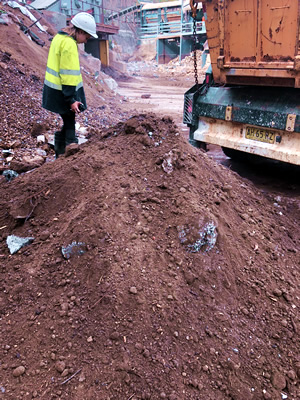
Asbestos & Asbestos Cement
Asbestos is classified as a Type 1 special waste. If your home was built or renovated before 1987, you may be surprised where asbestos products have been used in your home.
Products made from bonded asbestos cement that may have been used in your home include:
- Fibro sheeting (flat and corrugated) in walls and ceilings
- Water drainage and flue pipes
- Roofing shingles and guttering
- The backing of floor coverings can be found in numerous locations, in and outside your home.
- Backing of vinyl sheet floor covering
- Carpet underlay
- Cement flooring
- Compressed asbestos sheet
- Flues to fireplaces
- Insulation below wood heater
- Internal and external ventilators
- Internal angle mouldings
- Internal walls & ceiling
- Kitchen splashback
- Loose fill insulation in roof cavity
- “Tilux” marble finish wall panel
- Vinyl floor tiles
- Wall sheeting
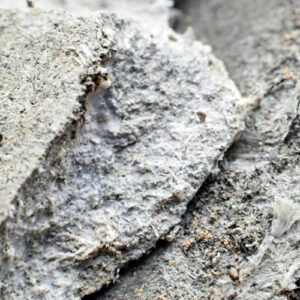
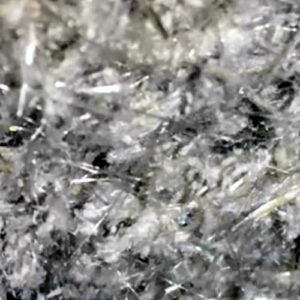
Types of Asbestos
Non-friable Asbestos
Non-friable is the most common form of asbestos and includes a range of asbestos cement products such as fencing and roofing sheets, as well as vinyl asbestos tiles. Non-friable asbestos has a binder that holds the asbestos fibres in a solid matrix.
Friable Asbestos
Friable asbestos products are generally quite loose and, when dry, can be crumbled into fine material or dust with very light pressure, such as crushing with your hand. These products usually contain high levels of asbestos (up to 100% in some cases), which is loosely held in the product so that the asbestos fibres are easily released into the air. Bonded asbestos products that have been damaged or badly weathered (including hail damage), may also become friable.
Please use asbestos waste bags, drums or bins, a waste skip, vehicle tray or similar container. Asbestos should be sealed in double-lined, heavy-duty plastic sheeting or double bagged before they are placed in the skip. Once the skip is full its contents should be completely sealed with the plastic sheeting.
Friable Asbestos Contaminated Soil
If friable asbestos is identified in or on soil, all the following actions are recommended:
- isolate and secure the area by installing warning signs and a temporary barricade (eg marker tape) around the affected area to prevent anyone from accidentally disturbing the materials and generating airborne asbestos fibres
- to minimise the release of fibres into the air keep soil damp (but not flooded); and, if it is safe to do so, cover the area with plastic sheeting
Residential & Domestic Waste
Household Waste
Household waste can be made up of a variety of materials, from furniture to old sporting equipment. These items can build up over time creating clutter around the home.
Brown Bros Skips Bins offers skip’s starting from 2m3 through to 10m3 (access limitations apply). Our specialised trucks can access the most challenging locations. We have 6500 tonne marrel truck for those tight locations or our 14 tonne hook trucks which can position bins in garages or under low lying eves.
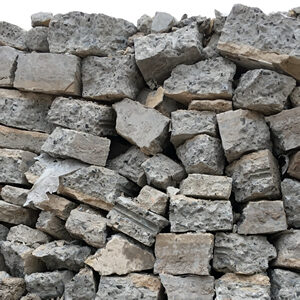
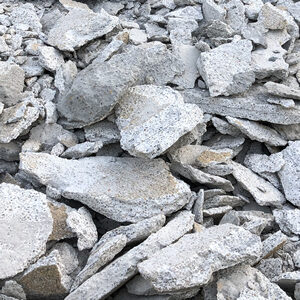
Household Waste Accepted
- Greenwaste & Vegetation
- Paper & Cardboard
- Rubble & Demolition
- Steel
- Ceramics
- Window Panes & Shower Cubicle Glass
- Electronic waste
Accepted electronic waste items include:- Televisions
- Desktop PC
- Laptop PC
- Tablets
- Hard drives
- Keyboards
- Computer mice
- Computer power supplies
- Network and memory cards
- Floppy disc and CD / DVD drives
- Printers
- Scanners
- Faxes
Hazardous Waste NOT Accepted
- Acid
- Automotive fluids (coolant, brake fluid)
- Batteries (car, truck and household batteries)
- Bleach
- Car care products
- Chemicals, pesticides & herbicides
- Flammable liquids
- Flares
- Fluorescent lights
- Gas cylinders
- Old art supplies
- Paint
- Paint thinners
- Poisons
- Pool chemicals
- Pressurized gas cylinders
- Scheduled poisons S2-S7
- Solvents
Please call us to arrange collection of the following waste (additional fee may apply):
- Car bodies
- Tyres
- Mattresses
Waste Classification
Class I Waste
- Clean fill – material that has no harmful effect on the environment and consists of rocks or soil arising from the excavation of undisturbed material such as clay, gravel, sand and soil.
- Type 1 inert waste – non-hazardous and non-biodegradable waste such as bricks, concrete and asphalt waste resulting from road construction.
- Type 2 inert waste – non-biodegradable organic materials, such as shredded tyres, that are flammable and require special management to reduce the risk of fires.
- Type 3 inert waste – material from licensed secondary waste treatment plants.
- Contaminated solid wastes specified for class I landfills – waste that is generally capable of being moved by a spade at normal temperatures and does not contain, or is comprised of, any free liquids or liquids that may be released during transport.
- Type 1 special waste – asbestos waste that is regarded as hazardous but which, with special management techniques, may be disposed of safely.
Class II Waste
- Includes all class I wastes, except for type 3 inert waste
- Putrescible waste – waste that is likely to become putrid such as food and plant materials.
- Type 2 special waste – biomedical waste that does not require incineration and which is approved for supervised burial.
- Contaminated solid waste specified for class II landfills.
Class III & IV Waste
Class III waste includes all Class I and Class II wastes plus additional contaminated solid wastes which meet specific criteria for Class III landfills and require specific license conditions.
Class IV waste includes all of the above plus further additional contaminated solid wastes. Red Hill is the only waste management facility in the Perth metropolitan area licensed to receive Class IV waste.
Waste Type & Processing FAQ's
What types of waste does Brown Bros. Skip Bins recycle?
Brown Bros. Skip Bins recycles over 80% of a wide range of waste from the general public, households, commercial operators, and local construction companies, builders and other organisations. The following waste types are accepted: Asbestos & Asbestos Cement, Office Waste, Rubble, Virgin Excavated Natural Material, White Goods & Appliances, Brick & Concrete, Demolition & Construction, Clean Fill, Contaminated Soil, Gyprock & Plasterboard, Household Waste, Non–Recyclable, Paper & Cardboard, Sandstone, Steel & Metal, Tiles, Tyres, Vegetation / Green Waste .
What is the cost of a skip bin?
The cost of a skip bin depends on both size and weight, and Brown Bros. Skip Bins offers cheaper rates for sorted and separated recyclable waste such as brick, concrete, timber, vegetation and clean fill .
How do I book a skip bin?
You can book a skip bin by filling out the online form available at https://www.brownbrosbins.com.au/skip-bin-hire-form/
How long will it take to have my bin delivered?
What should I do with asbestos?
Asbestos is a hazardous material and should be handled with care. Brown Bros. Skip Bins provides asbestos removal services. Please contact them at 02 9999 6466 for more information
What can’t I put in my bin?
The following items cannot be put in the bin: food waste, hazardous waste, liquids, medical waste, chemicals, batteries, paint, oil, gas bottles, and other flammable materials.
What should I do if I have more questions?
You can visit https://brownbrosbins.com.au/faq/ for more frequently asked questions or contact Brown Bros. Skip Bins at 02 9999 6466 for further assistance .
Customer Testimonials

